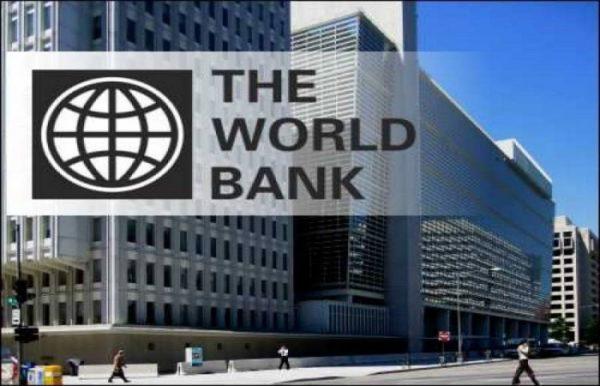The intergovernmental group of twenty-four (G-24) on international monetary affairs and development has expressed their concerns over some of the measures undertaken by the World Bank Group, WBG, in addressing the post COVID economic, financial and development challenges of the low and middle income countries (LICs and MICs).
The G-24, organized under the WBG system, however, commented some of the outcomes of the measures which had lessened the hardships and human sufferings experienced from various crises globally.
At their 109th meeting held during the on-going 2023 Spring Meetings of the WBG in Washington DC, the ministers of the G-24 nations with Nigeria’s Minister of Finance, Zainab Ahmed, in attendance, noted that the COVID-19 induced economic crises and the most recent global financial instability are stretching the capability of their governments as well as humanitarian agencies to cope with the challenges, and strongly support international efforts to restore peace, stability and livelihoods.
They stated: ‘‘Multiple crises and shocks threaten global stability and narrow the scope for smooth macroeconomic adjustment in many countries. Human development is suffering major setbacks as a consequence of these crises.
‘‘Extreme and severe poverty are increasing, food insecurity is worsening, learning losses are immense, migration and forced displacement are at record highs and inequality has risen worldwide, particularly in low- and middle-income countries (LICs and MICs).
‘‘COVID-19 severely limited economic activity and continues to hold many countries on a low growth path. Global growth remains below pre-pandemic levels with risks heavily skewed to the downside, and many emerging market and developing economies (EMDEs) are projected to grow below their potential in 2023.
‘‘Geopolitical conflicts are a major contributor to food and fuel price inflation, and, together with extreme weather conditions, a source of food and energy insecurity in parts of the world’’. The World Food Programme estimates that the number of food insecure persons will rise to 345 million in 2023, more than double the number in 2020.
The G-24 ministers’ communiqué issued after the meeting also stated: ‘‘While the oil market remains well supplied as maintained by OPEC and countries in the Declaration of Cooperation, recent financial market turmoil is creating volatility in the futures market for fuel, with the possibility for near-term inflation’’.
Referencing the impact of the global financial instability on the LICs and MICs, the ministers stated: ‘‘External risks are rising as interest rate spreads increase and risk premia rise. These factors are compounded by high levels of debt, fiscal and current account imbalances, and high inflation.
‘‘At the same time, the scope for financing is narrowing as domestic exchange rates weaken. Capital flow dynamics are highly uncertain in EMDEs given the much faster than expected pace of global monetary tightening.
‘‘The recent developments in some advanced economies’ (AEs) banking sector raise concerns about the risks of systemic financial instability and contagion effects. Systemically important economies should remain vigilant about inflation but should also be mindful of the trade-offs in policy choices, and guard against adverse spillovers of their policies, while EMDEs affected by tighter conditions should implement policies to preserve and increase resilience’’.
At the backdrop of these crises points, the ministers recommended some reforms to address them. They stated: ‘‘Given the rising risks, more support is needed to expand global liquidity. We call for expanding the Resilience and Sustainability Trust (RST) beyond climate change and pandemic preparedness to include other sources of Balance of Payment (BOP) vulnerabilities and an early review of the Food Shock Window (FSW).
‘‘While we welcome the existing pledges to recycle Special Drawing Rights (SDRs) to the RST, we call on additional member countries to join the effort to increase the RST’s lending capacity.
‘‘We also welcome the IMF’s decision to raise the annual cumulative limits of access for borrowings under the General Resources Account (GRA), which could help countries facing increased financing pressures.
‘‘We regret the lack of increase in access limits for the Poverty Reduction and Growth Trust (PRGT) account, due in part to a large subsidy resource gap, and call on donors to help to narrow this gap as this will maintain the low cost of using SDRs for developing countries.
‘‘Allocations of new SDRs, together with reforms of IMF precautionary financing instruments, could further expand global liquidity and contain systemic risks. By strengthening the level of reserves, country authorities will be able to broaden their range of policy options to tackle the ongoing economic and social challenges.
‘‘An additional SDR allocation would mitigate BOP and debt crises, including by lowering countries’ borrowing costs. However, any new allocation of SDRs must be accompanied by a commitment from countries with large quota shares to increase the level of re-channeling of new SDRs to countries most in need’’.


